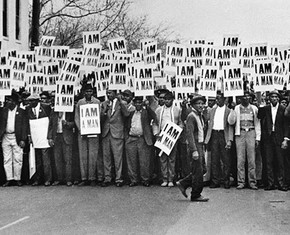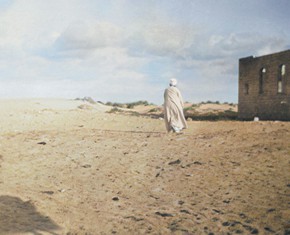The views expressed in our content reflect individual perspectives and do not represent the authoritative views of the Baha'i Faith.
The Bible verse from Jeremiah 13:23 says “Can the Ethiopian change his skin or the leopard his spots?”
This verse has often served as a basis of belief that a person’s innate character cannot be changed, just as their physical aspects of color cannot be easily altered (setting aside hair color!).
Abdu’l-Baha, the leader of the world’s Baha’is after his father Baha’u’llah’s passing, explained in a tablet he wrote to the Central Organization for a Durable Peace in the Hague that:
… religion is a mighty bulwark … in the world of mankind there are two safeguards that protect man from wrongdoing. One is the law which punishes the criminal; but the law prevents only the manifest crime and not the concealed sin; whereas the ideal safeguard, namely, the religion of God, prevents both the manifest and the concealed crime, trains man, educates morals, compels the adoption of virtues and is the all-inclusive power which guarantees the felicity of the world of mankind. But by religion is meant that which is ascertained by investigation and not that which is based on mere imitation, the foundation of Divine Religions and not human imitations.
This “mighty bulwark” of religion that “compels the adoption of virtues” can help us all deal with life’s challenges. The 12–Step Method developed by Alcoholics Anonymous and adopted by the majority of programs that seek to help people with various forms of addictions, for example, refers in six of the 12 steps (2, 3, 5, 6, 7, and 11) to reliance on a “higher power.” When we reach out to that higher power, trust in the guidance we find there, and dedicate our efforts to that spiritual source, we can make great strides – and make it possible for our souls to undergo a spiritual transformation. Why else would the remainder of that Biblical verse tell us “Then may you also do good who are accustomed to do evil.”
RELATED: How a Letter to America Raised the Call for Divine Justice
The history of the Baha’i Faith in America offers a beautiful example of the power of religion to transform a soul.
On February 7, 1887 in Dodge, Iowa, Fred Mortensen was the third of 13 children born into an impoverished immigrant family from Denmark. In 1893 his family moved to Minneapolis, Minnesota where his father, unable to find work, took to drink and eventually abandoned the family.
After the third grade, Fred and his brothers left school to try and support their family; they were known to steal food and dig through trash cans in search of leftovers. Fred was hired to perform menial labor at the “Minneapolis Star,” but he resented work and quit at the ripe old age of ten.
Seeking peer acceptance and support, Fred and his brothers joined a gang. Fred’s innate sense of superiority made him feel he could easily best those around him. He enjoyed the rough and tumble, and admitted, “fighting is a real pleasure, as welcome as a meal.” Life on the streets turned him into a hard, ruthless thug. He drank too much, enjoyed violating the law, stealing, brawling, and bullying others. He recalled “breaking a grocer’s window to steal his fruit or what-not was, as I thought, a great joke.”
The gang terrorized immigrants, especially Russians and Jews. He related: “I can’t begin to tell you how we enjoyed persecuting them, stealing their wine, breaking their windows, in fact doing everything but setting fire to their homes.”
Two versions explain how, while being chased by police, they were able to catch him after Fred fell and broke his leg. According to his great-grandson, Justin Charles Martin Penoyer:
“In 1904, at age 17, Mortensen and his gang robbed a local train. As his younger brother grabbed a mail bag, Fred noticed the police coming. He took the bag from his brother and told him to run. The police chased Fred instead. In an effort to avoid a barrage of bullets, he jumped a wall, fell and broke a leg. His flight was arrested and so was he. The prison doctor set the leg improperly, which left Fred with one leg shorter than the other, resulting in a permanent limp.”
In Mortensen’s own version, he wrote:
“… a young fellow was being arrested and I, of course, tried to take him away from the policeman. While this was going on a couple of detectives happened along and in my haste to get away from them I leaped over a thirty-five foot wall, breaking my leg, to escape the bullets whizzing around about – and wound up in the ‘garden at the feet of the Beloved’ as Baha’u’llah has so beautifully written it in the Seven Valleys.”
In his wonder at God’s grace, Fred writes about how he arrived at the gate to the garden of the Beloved through his own criminal activity:
“I violated any law I saw fit, man’s or God’s. Strange as it seems to me at times, it was through coming into contact with these laws that I received the opportunity to be guided into this most wonderful Revelation.”
RELATED: 5 Inspirational Baha’i Women in American History
The gate keeper of the garden was the attorney appointed to defend him: Albert Hall, who became a Baha’i between 1900 and 1903. Mortensen recalled:
“At this time I was defended by our departed, but illustrious Baha’i brother, Albert Hall, to whom I owe many thanks and my everlasting good will for helping to free me from the prison of men and of self. It was he who brought me from out the dark prison house; it was he who told me, hour after hour, about the great love of Abdu’l-Baha for all His children and that he was here to help us show that love for our fellowmen. Honestly, I often wondered then what Mr. Hall meant when he talked so much about love, God’s love, Baha’u’llah’s love, Abdu’l-Baha’s love, love for the Covenant … I was bewildered. Still, I returned, to become more bewildered, so I thought; and I wondered why. … Thus the Word of God gave me a new birth …”
Fred Mortensen found the Baha’i Faith while in prison, and it changed his entire life. In the next part of this series, we’ll see how the process of his transformation progressed, with steps backward, and then forward again.
















Comments
Sign in or create an account
Continue with Googleor